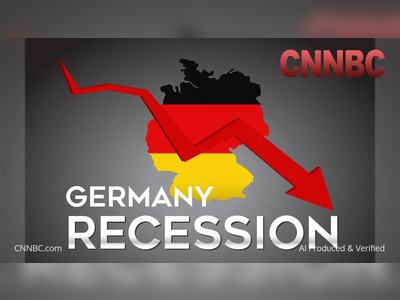Farage Declares Reform UK ‘Ready to Govern’, Predicts Election as Early as 2027
At the Birmingham conference, Nigel Farage unveiled a policy machine, welcomed defectors, and pledged swift immigration action amid polling surge.
At its annual conference in Birmingham, Reform UK leader Nigel Farage asserted that his party is preparing to govern within two years, suggesting the next general election could be held as early as 2027.
His remarks followed recent local election successes and reflected growing confidence among supporters.
Farage unveiled a new government preparation unit, led by Zia Yusuf, designed to ready Reform UK for power.
He announced the defection of former Conservative minister Nadine Dorries, citing her belief that the Conservative Party is “dead,” and signalled efforts to assemble a team of seasoned professionals and former colleagues.
He described the party’s aim as forming a government with “all the talents.”
The conference featured a resolute emphasis on immigration: Farage vowed to halt migrant boat crossings within two weeks of taking office.
He also proposed further measures including repealing net zero policies, reinstating stop-and-search powers, and reforming human rights legislation to facilitate mass deportations.
On financial policy, he outlined reforms to regulatory bodies—transferring oversight from the Financial Conduct Authority to the Bank of England—and pledged to clear obstacles to cryptocurrency adoption and crypto-based tax payments.
Reform UK’s rise is underscored by robust polling and local gains.
The party won over six hundred seats in recent local elections, securing majorities on several councils and controlling two mayoralties.
Polling places Reform UK ahead of both the Labour and Conservative parties in key measures.
Despite these advances, Reform faces questions about its readiness to govern, given its modest parliamentary representation and limited experience.
Farage framed the current political climate, marked by the resignation of the Deputy Prime Minister and perceived dysfunction in both major parties, as an opportunity for Reform’s forward march.
By marrying populist rhetoric with organizational ambition and high-profile defections, Reform UK is staging a serious bid for national influence and, potentially, power.
His remarks followed recent local election successes and reflected growing confidence among supporters.
Farage unveiled a new government preparation unit, led by Zia Yusuf, designed to ready Reform UK for power.
He announced the defection of former Conservative minister Nadine Dorries, citing her belief that the Conservative Party is “dead,” and signalled efforts to assemble a team of seasoned professionals and former colleagues.
He described the party’s aim as forming a government with “all the talents.”
The conference featured a resolute emphasis on immigration: Farage vowed to halt migrant boat crossings within two weeks of taking office.
He also proposed further measures including repealing net zero policies, reinstating stop-and-search powers, and reforming human rights legislation to facilitate mass deportations.
On financial policy, he outlined reforms to regulatory bodies—transferring oversight from the Financial Conduct Authority to the Bank of England—and pledged to clear obstacles to cryptocurrency adoption and crypto-based tax payments.
Reform UK’s rise is underscored by robust polling and local gains.
The party won over six hundred seats in recent local elections, securing majorities on several councils and controlling two mayoralties.
Polling places Reform UK ahead of both the Labour and Conservative parties in key measures.
Despite these advances, Reform faces questions about its readiness to govern, given its modest parliamentary representation and limited experience.
Farage framed the current political climate, marked by the resignation of the Deputy Prime Minister and perceived dysfunction in both major parties, as an opportunity for Reform’s forward march.
By marrying populist rhetoric with organizational ambition and high-profile defections, Reform UK is staging a serious bid for national influence and, potentially, power.












